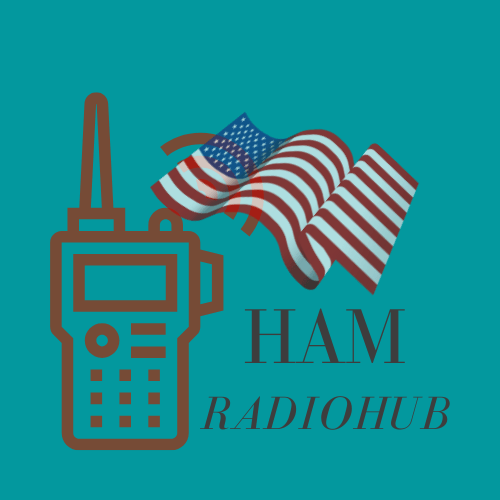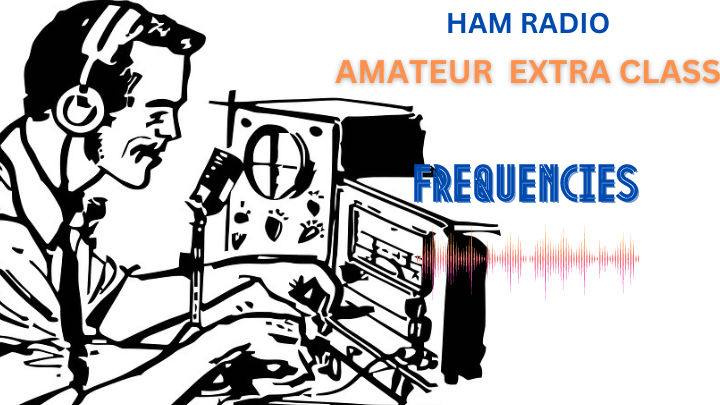Before understanding HAM radio Amateur Extra class frequencies, something must be cleared about radio frequency bands itself. The radio frequency bands spans right from 30kHz to 300GHz . Out of that some frequency bands are authorized for use by HAM radio operators by the FCC.
It is then further bifurcated for use by different class of HAM radio license holders. And not all class of license holders are allowed on all the bands and operating modes. Here we’ll just look into frequency bands and operating modes that are privileged for HAM radio Amateur Extra class license holders.
As of January, 2025 there are no major changes in Amateur Extra Class Privileges.
What is Ham radio amateur extra class license?
The ham radio Amateur Extra class license is top-level amateur radio license out of three license classes in the United States. It grants individuals the privilege to operate on almost all frequency bands and modes within the amateur radio spectrum. Anyone who is interested in learning this radio communication skill can obtain license from the FCC and start their journey as a entry-level ham radio operator and then upgrade to second level i.e. general class license and then finally upgrade to the third tier i.e. amateur extra class license.
Ham radio amateur extra class license exam:
The Ham radio Amateur Extra class license is obtained by passing a written examination administered by the Federal Communications Commission (FCC) or a Volunteer Examiner Coordinator (VEC) organization.
To upgrade to General Class, you must already hold a Technician Class license or have recently passed the Technician license exam. Upgrading to a General license will provide extensive privileges in the HF band. It gives access to majority of the amateur spectrum with wide range of operating modes. Overall the general class license has the access to overall more than 80% of the Amateur HF band.
To upgrade to Amateur extra class, you must already hold a General Class license or have recently passed the General class license exam. Upgrading to amateur extra will provide total privileges in the entire ham radio frequency band with only some restrictions on the operation modes.
Note:
Effective April 15, 2000, Novice class licenses were abolished and no longer issued to any newbies by the FCC provided that existing licenses will be remain valid and can be renewed indefinitely. Also Effective February 23, 2007, Morse code test requirements was also dropped. As a result Technician class license holders are granted all privileges of the Novice class by default.
Additionally the Technician Plus class licenses are also discontinued from 2000 by the FCC and the existing tech plus licenses were converted to Technician class on modification or renewal. So technician and technician plus have now identical privileges. And above that Ham radio general class frequencies will include all that were in technician and technician plus classes.
There is another class of ham radio license called “Advance Class” after the General class, but It was abolished by the FCC effective April 15, 2000. Advance class licenses are not issued anymore. Current Advanced licenses remain valid, and can be renewed indefinitely. Advanced class operators have additional HF operating privileges beyond those of Generals. Amateur Extra Class license will carry all the privileges of the Advance class.
Ham radio amateur extra class frequencies & operating modes:
Almost all frequencies in entire ham radio band are privileged to the Amateur extra class licensees.
The table below summarizes the Ham radio Amateur extra class frequencies and operating mode privileges:
| BAND | FREQUENCY RANGE | OPERATING MODES |
|---|---|---|
| LF | 135.7-137.8 kHz (2200m) | CW, RTTY/DATA, PHONE ,IMAGE |
| MF | 472–479 kHz (630m) | CW, RTTY/DATA, PHONE ,IMAGE |
| MF | 1.800-2.000 MHz (160m) | CW, RTTY/DATA, PHONE ,IMAGE |
| HF | 3.525-3.600 MHz (80m) | CW, RTTY/DATA |
| HF | 3.600-4.000 MHz (80m) | CW, PHONE, IMAGE |
| HF | 5332-5405 kHz (60m) | USB ONLY |
| HF | 7.025-7.125 MHz (40m) | CW, RTTY/DATA |
| HF | 7.000-7.125 MHz (40m) | CW, RTTY/DATA |
| HF | 7.175-7.300 MHz (40m) | CW, PHONE |
| HF | 10.100-10.150 MHz (30m) | CW, RTTY/DATA |
| HF | 14.000 – 14.150 MHz (20m) | CW, RTTY/DATA |
| HF | 14.025 -14.150 MHz (20m) | CW, RTTY/DATA |
| HF | 14.150 -14.350 MHz (20m) | CW, PHONE, IMAGE |
| HF | 14.175 -14.350 MHz (20m) | CW, PHONE, IMAGE |
| HF | 14.225 -14.350 MHz (20m) | CW, PHONE ,IMAGE |
| HF | 18.068-18.110 MHz (17m) | CW, RTTY/DATA |
| HF | 18.110-18.168 MHz (17m) | CW, PHONE ,IMAGE |
| HF | 21.000-21.200 MHz (15m) | CW, RTTY/DATA |
| HF | 21.025-21.200 MHz (15m) | CW, RTTY/DATA |
| HF | 21.200-21.450 MHz (15m) | CW, PHONE, IMAGE |
| HF | 21.225-21.450 MHz (15m) | CW, PHONE, IMAGE |
| HF | 21.275-21.450 MHz (15m) | CW, PHONE ,IMAGE |
| HF | 24.890-24.930 MHz (12m) | CW, RTTY/DATA |
| HF | 24.930-24.990 MHz (12m) | CW, PHONE ,IMAGE |
| HF | 28.000-28.300 MHz (10m) | CW, RTTY/DATA |
| HF | 28.300-28.500 MHz (10m) | CW, PHONE |
| HF | 28.300-29.700 MHz (10m) | CW, PHONE ,IMAGE |
| VHF | 50.0-50.1 MHz (6m) | CW ONLY |
| VHF | 50.1-54.0 MHz (6m) | CW, RTTY/DATA, PHONE ,IMAGE, MCW |
| VHF | 144.0-144.1 MHz (2m) | CW ONLY |
| VHF | 144.1-148.0 MHz (2m) | CW, RTTY/DATA, PHONE ,IMAGE, MCW |
| VHF | 222.00-225.00 MHz (1.25m) | CW, RTTY/DATA, PHONE ,IMAGE, MCW |
| UHF | 420.0-450.0 MHz (70cm) | CW, RTTY/DATA, PHONE ,IMAGE, MCW |
| UHF | 902.0-928.0 MHz (33cm) | CW, RTTY/DATA, PHONE ,IMAGE, MCW |
| UHF | 1270-1295 MHz (23cm) | CW, RTTY/DATA, PHONE ,IMAGE, MCW |
| UHF | 1240-1300 MHz (23cm) | CW, RTTY/DATA, PHONE ,IMAGE, MCW |
As you can observe in the table; ham radio amateur class frequencies spans right from LF 2200 meter band to UHF 23 cm band with various options for operating modes.
Various operating modes for Amateur extra class license holder includes CW (Morse code), RTTY/data (Radio Teletype), Phone, Image & MCW (Modulated Continuous Wave which is morse code telegraphy which modulates the carrier by audio tones).
As morse code is getting less & less popular these days; Phone (audio) is the most popular operating mode amongst technician class. Particularly 2 meter band with frequency range 144.1-148.0 MHz is the most popular band amongst all classes amateur radio operators.
Ham radio amateur extra class frequencies || pdf download
I have prepared a simple pdf for referring ham radio amateur extra class frequencies and privileges. Click here for the download
Ham radio amateur extra class frequencies: Advantages
Using ham radio amateur extra class frequencies is availability of such a wide band of frequencies and bands to operate. Over to that operating modes has the greater flexibility. However the downside (If you see it as a downside!!) is to go though two preliminary license class examinations i.e. Technician class and General class and then you’ll be able to upgrade to the Amateur extra class license.
Ham radio Amateur extra class frequencies: Conclusion
I hope you got an overall idea at a glance on the ham radio amateur extra class frequencies and privileges given as a licensee. Being a responsible ham radio operator, you should go through each bands and privileges before directly going on air and take care of the operating privileges to avoid interference with any other agency or operator.
Other blog posts from the category:
- Wide Band vs Narrow Band: Which is better for Ham Radio?
- HF Band conditions: A Comprehensive Guide
- HAM radio Frequencies & Bands in the USA: Popular frequencies with chart || Updated January 2025
- Ham Radio Emergency Frequencies: Must Know During Disasters || Updated 2025
- HAM radio General class privileges || Easy Guide USA (Updated 2025)
- HAM radio Technician class privileges || Easy Guide USA (Updated 2025)
- HAM radio Amateur extra class frequencies || Easy Guide USA (Updated 2025)

